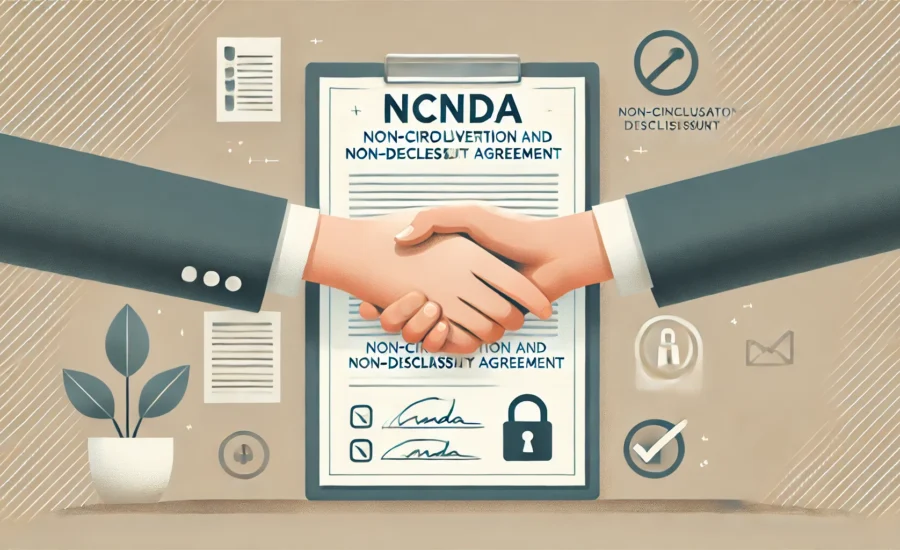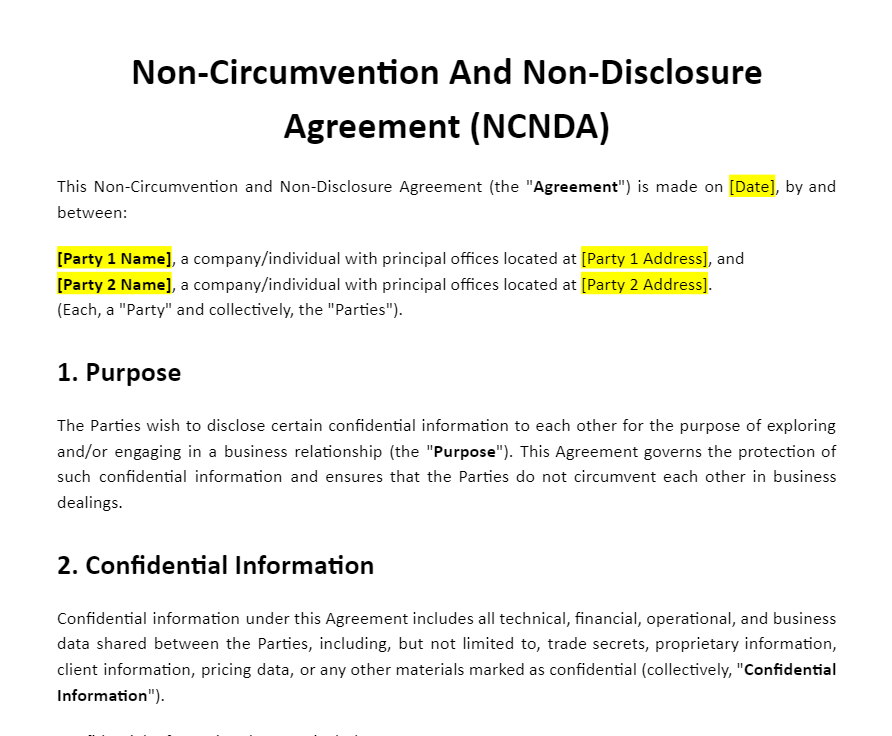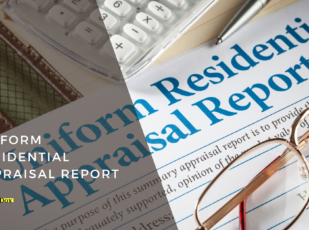
Non-Circumvention And Non-Disclosure Agreement (NCNDA) Template
21 Downloads
Commercial
March 10, 2025
Sayantani Dutta
Non-Circumvention and Non-Disclosure Agreement (NCNDA) Template is a powerful tool for professionals who share sensitive information, introduce valuable contacts, or rely on intermediaries in complex deals. In an interconnected global market, confidentiality, trust, and clear boundaries are essential. An NCNDA template helps you document those expectations before you reveal your network, trade secrets, or key relationships.
If you are planning to collaborate with another party, broker, or middleman, a well-drafted NCNDA Template can protect your interests, preserve your role in transactions, and give you more confidence when exploring new business opportunities.
What is an NCNDA? – Non-Circumvention and Non-Disclosure Agreement Template Explained
An NCNDA (Non-Circumvention and Non-Disclosure Agreement) is a legally binding contract typically used between business professionals, intermediaries, brokers, or partners who are sharing confidential information and introducing one another to clients or counterparties. A structured NCNDA Template sets out the rules for how that information and those relationships can be used.
The agreement has two core pillars: non-circumvention and non-disclosure. Non-circumvention prevents parties from bypassing the intermediary or original partner to work directly with introduced clients, suppliers, or investors. Non-disclosure restricts the use and sharing of confidential data without permission, helping to protect trade secrets, strategies, pricing, and other sensitive material.
In many international deals, an NCNDA is introduced at an early stage—especially where brokers bring together buyers and sellers, or where intermediaries open doors to new markets and networks. The agreement helps protect the work of those intermediaries and establishes how information and contacts may be used, both during the relationship and after it ends.
If the collaboration is terminated, a properly drafted NCNDA Template makes clear that confidential information remains protected. In the event of a breach, the injured party has a contract to rely on when seeking legal remedies or compensation for losses.
The Benefits of an NCNDA Template in Business
A Non-Circumvention and Non-Disclosure Agreement (NCNDA) Template is particularly valuable when brokers, consultants, or partners are introducing commercial opportunities, and when key information or relationships are at stake. It protects against being sidelined and against unauthorised disclosure of sensitive data.
If you are considering whether you need an NCNDA Template, some of the most important benefits include:
1. Protects Sensitive Data
An NCNDA Template gives you a clear framework for defining and protecting confidential information. It allows you to share crucial details—such as intellectual property, designs, business strategies, pricing models, or client lists—while setting legal boundaries on how that information may be used. This reduces the risk of your proprietary information being copied, exploited, or shared without your consent.
2. Safeguards Intermediaries and Introductions
Non-circumvention provisions ensure that intermediaries, brokers, or partners who introduce valuable contacts are not cut out of deals. When parties sign an NCNDA, they agree not to bypass one another in order to work directly with introduced clients, investors, or suppliers, whether directly or indirectly. This helps secure the intermediary’s role and encourages fair compensation for the value they create.
3. Strengthens Trust and Professional Relationships
A clear NCNDA Template signals professionalism and commitment. By documenting obligations, roles, and boundaries, it gives all parties more confidence in the relationship. This encourages open collaboration, knowing that both sides are taking confidentiality and non-circumvention seriously.
4. Provides a Legal Framework and Defense
Because an NCNDA is a contract, it can be legally enforced where it is valid and applicable. If a breach occurs—such as unauthorised disclosure of confidential data or direct dealings with an introduced client—the agreement provides a basis for seeking remedies, negotiating solutions, or pursuing formal dispute resolution.
Key Components of an NCNDA Template
A well-structured Non-Circumvention and Non-Disclosure Agreement (NCNDA) Template includes several essential components that work together to protect both parties. Typical elements include:
- Non-Circumvention Clause: Prevents either party from bypassing the other to deal directly with contacts, clients, or partners introduced under the agreement. It generally covers both direct and indirect dealings for a specified period.
- Non-Disclosure Clause: Prohibits the unauthorised use or disclosure of confidential information. This clause aligns closely with typical NDA language, ensuring that sensitive information exchanged during discussions or transactions is kept secure.
- Definition of Confidential Information: Clarifies what is considered confidential—such as business plans, trade secrets, pricing, client lists, intellectual property, financial data, or strategic information—to avoid ambiguity and misunderstandings.
- Permitted Use and Exceptions: Sets out how confidential information may be used (for example, solely for evaluating a proposed transaction) and identifies any specific exceptions where disclosure may be permitted, such as to advisors bound by confidentiality or where required by law.
- Duration of Agreement: States how long the non-circumvention and non-disclosure obligations remain in effect. This often covers the active business relationship and a period after termination, especially for confidentiality obligations.
- Jurisdiction and Governing Law: Identifies which laws apply and where disputes will be resolved. This helps parties understand the legal framework and avoid confusion if issues arise.
- Remedies and Dispute Resolution: Describes options such as negotiation, mediation, arbitration, or court proceedings, and may address types of relief that can be sought if the agreement is breached.
Potential Risks of Not Using an NCNDA Template
Operating without a Non-Circumvention and Non-Disclosure Agreement (NCNDA) Template can expose your business to significant risks. Without a written agreement, it can be difficult to prove what was agreed verbally, which increases the chance of misunderstandings and conflicts.
Some of the main risks of not using an NCNDA include:
- Sensitive information—such as client lists, pricing, or trade secrets—may be misused, copied, or shared with competitors without your consent.
- Intermediaries or partners may be bypassed, losing out on commissions, fees, or participation in deals they helped create.
- Without clear written terms, it is harder to enforce expectations in the event of a dispute, which can lead to costly, time-consuming conflicts.
- Trust between parties can be damaged if one side feels exposed or misused, reducing the chances of future collaboration.
- Leaks or misuse of confidential information can harm your brand reputation and relationships with investors, clients, and partners.
Failing to use a non-circumvention and non-disclosure framework means taking on additional risk in every introduction and negotiation. An NCNDA Template is a straightforward way to put guardrails in place and protect your position.
Protect Your Trade Secrets with FreshDox’s NCNDA Template
A Non-Circumvention and Non-Disclosure Agreement (NCNDA) Template is a practical, protective step for businesses and professionals who rely on trust, introductions, and access to confidential information. It helps ensure that intermediaries are recognised, compensated appropriately, and not bypassed, while sensitive data remains secure.
Drafting a detailed NCNDA from scratch can be time-consuming and challenging, particularly if you do not work with legal contracts every day. FreshDox.com’s NCNDA Template is designed to make this easier. It is structured by legal professionals to cover key aspects of non-circumvention, non-disclosure, confidentiality, and dispute resolution, while remaining clear and practical to use.
Our finely and meticulously crafted templates are developed by experienced legal professionals and subject matter experts, covering each and every aspect of your partnership and joint venture. By becoming a Basic or Premium at FreshDox, you can avail and access hundreds of certified and verified document templates that can be downloaded in both PDF and Word file formats, for instant editing and sharing. Moreover, with our 14-day trial period, you can explore and enjoy the unique perks of our Basic or Premium Plans. While our Basic Members can download up to 3 document templates every month, Premium Members get access to unlimited downloads. So stop wasting your time and avoid putting your business in jeopardy by subscribing to FreshDox.com today. Manage your manufacturing process like an expert with our highly effective Manufacturing Agreement Template. Register to download now!
Popular searches:
- Non-Circumvention And Non-Disclosure Agreement (NCNDA) Template pdf
- Non-Circumvention And Non-Disclosure Agreement (NCNDA) Template sample
- Non-Circumvention And Non-Disclosure Agreement (NCNDA) Template download
- Non-Circumvention And Non-Disclosure Agreement (NCNDA) Template format
- Non-Circumvention And Non-Disclosure Agreement (NCNDA) Template template
- Non-Circumvention And Non-Disclosure Agreement (NCNDA) Template word
- Non-Circumvention And Non-Disclosure Agreement (NCNDA) Template free
Related Templates
Discover more templates that align with your needs and preferences.

Ready to Sign Up?
Sign up for FreshDox.com’s 7-day trial and discover why so many individuals and businesses trust us for their legal document template needs.
- Cancel any time
- 7-day free trial
- From 300+ Customer Reviews
















